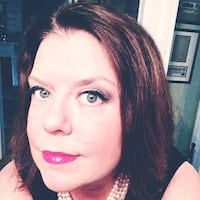“The Good Lie,” in theaters now, tells a huge story by telling a more narrowly focused one.
The heartbreaking yet hopeful movie, filmed largely in Atlanta, is about Sudanese refugees who came to be known as “the Lost Boys” after fleeing the violence in their war-torn country. (According to the International Rescue Committee, which has a presence in Atlanta, nearly 4,000 of the refugees came to America in 2001, 120 of whom resettled in the Atlanta area with the IRC’s help.)
The movie's promotional materials give top billing to Reese Witherspoon, who plays a scatterbrained employment agency counselor who assists a small group of refugees, but the narrative belongs to the children who fled for their lives, walked thousands of miles, and endured cramped refugee camp conditions and then a confusing resettlement to America.
Two of the movie's African actors, Arnold Oceng and Kuoth Weil, along with screenwriter Margaret Nagle, visited Atlanta recently to discuss the film and The Good Lie Fund, which benefits charities that assist refugees. (Information: thegoodliefund.org.)
Weil was born to Sudanese parents in a refugee camp in Ethiopia after her parents fled the fighting; she lost her father and brother to the war and has been in America since she was 8. Oceng moved with his family to the U.K. as a young child.
Q: Describe the experience of portraying this awful chapter in history.
Weil: It was difficult and empowering. I had to let go of my anger. There was a struggle between being an American woman and being a Sudanese woman. When I read the script, I had to sit down with my family and talk about it.
Oceng: I was nervous but it was a challenge I was ready to accept. I'm telling the story of my people. We fled the war and came over to the U.K. I've had a very British upbringing. I was never really educated about my Sudanese side. I feel like I had closed the door on my Sudanese side. Being part of the film has opened that door again.
Q: Is it hard for you to watch the film?
Weil: I've seen it five times and I get emotional every time. For me, it's like I'm reliving it.
Oceng: It's not only a story about Sudan or the Lost Boys. It's a story about humanity, the love for your fellow sibling. There's a strong theme of faith.
Q: What feelings do you have about your native land?
Weil: Africa is a dark place right now. It's been for a very long time. You can't give up hope. Even though my country is at war right now, we shouldn't feel like we can give up. There is hope. We will have peace eventually.
Oceng: You can't give up hope. We are all testament to that.
About the Author
Keep Reading
The Latest
Featured


